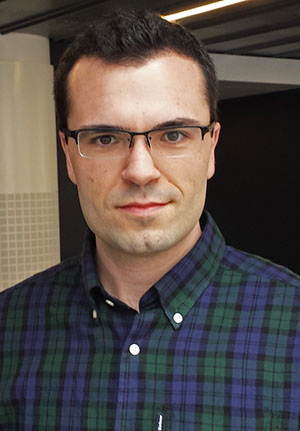"A perfect mixture of interesting and challenging circuits and a very exciting application"
Janko Katic from Serbia came to KTH for PhD studies after finishing his Master degree in Microelectronics in Switzerland. In May he defended his licentiate thesis "Efficient Energy Harvesting Interface for Implantable Biosensors".

Where are you from and where did you study before coming to KTH?
– I am from Serbia. I have finished my Bachelor studies there at the University of Belgrade, in the field of Electrical Engineering. Afterwards, I went to Switzerland and received a Master degree from EPFL in Microelectronics. Finally, I came to KTH for PhD studies.
What is your topic and why did you choose it?
– My research focuses on energy harvesting and power management circuits for implantable biosensors. I was always attracted towards low power biomedical applications since they are particularly demanding and delicate. This topic is a perfect mixture of interesting and challenging circuits and a very exciting application.
Describe your topic in short.
– Energy harvesting is a process that exploits small amounts of energy from the environment, which would otherwise be lost, such as heat, vibration, etc. The idea in this work is based on the fact that there are such energy harvesting sources inside the human body which can be used to power implantable biosensors. Unlike batteries, these sources do not have a limited lifetime. My circuits should enable “self-powering” by efficiently transferring the energy from a potential source to an implantable biosensor.
Tell us something about your results.
– I have developed an efficient power management unit for thermoelectric energy harvester within the human body. The transferred amount of power seems sufficient to enable battery free biosensors. Simulations showed promising results. A chip was fabricated and it is going to be measured and fully characterized soon.
What will the future bring for your research, how will you continue and what focus will you have on your PhD thesis?
– After the chip is evaluated, the next step is to develop power management circuits for multi-source energy harvesting. This means that a few sources are harvested simultaneously, such as, for instance, thermal and biochemical sources. This solution would increase the amount of power available to a biosensor and improve the reliability of the complete system.

